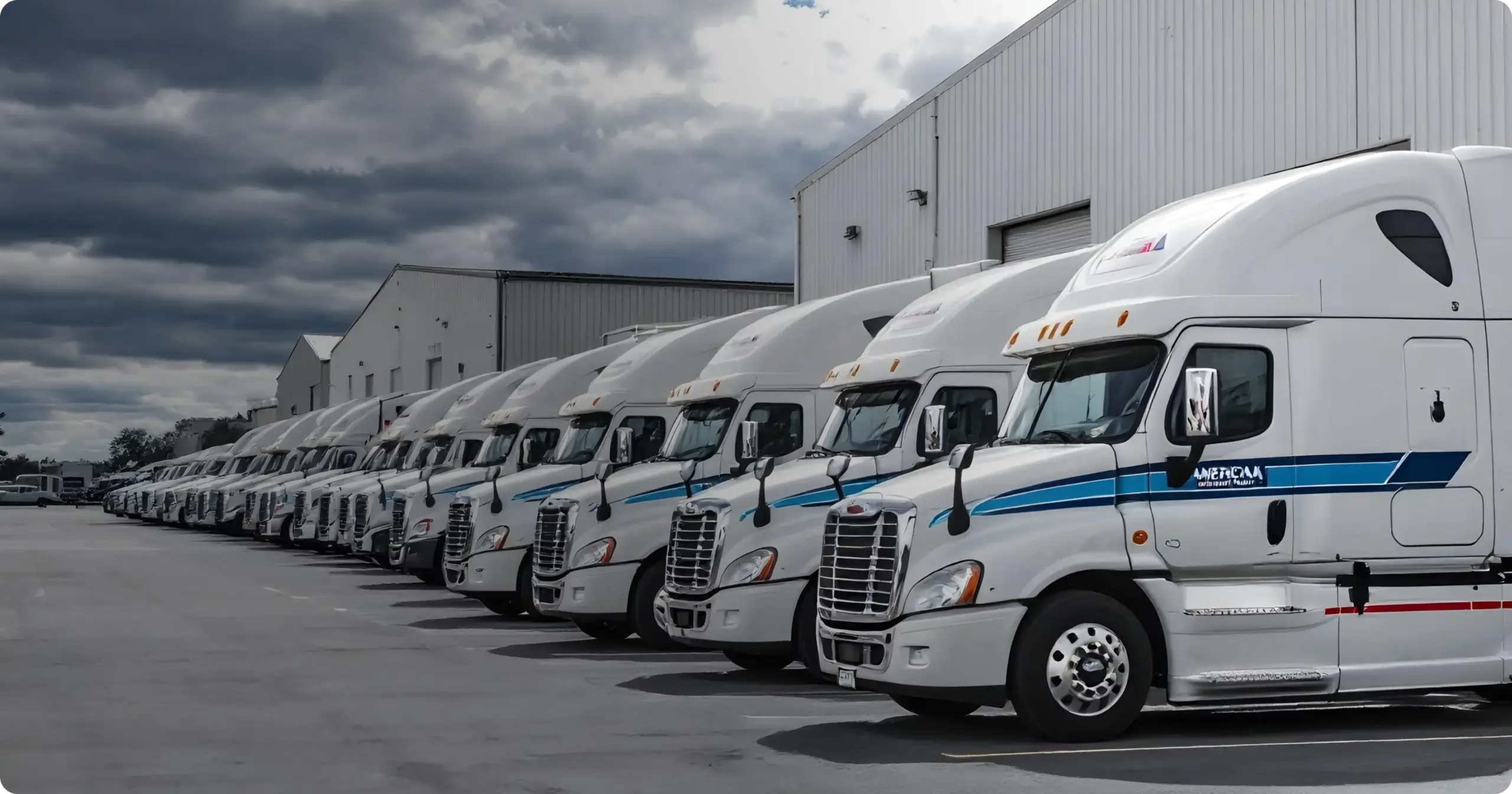The fleet management industry is evolving rapidly, driven by new technology, shifting market demands, and increased regulatory pressures. As we approach 2025, truck drivers must stay ahead of these fleet management trends to maintain a competitive edge. By leveraging advancements in fleet management technology trends, trucking businesses in the United States and Canada can enhance efficiency, ensure compliance, and maximize profitability.

This comprehensive guide explores the key fleet management industry trends shaping the future and highlights how TruckX can help fleets adapt to a dynamic market environment.
1. AI and Machine Learning for Smarter Fleet Decisions
Artificial intelligence (AI) and machine learning are transforming how fleets operate. These technologies empower predictive analytics, enabling fleets to anticipate maintenance needs, optimize routing, and analyze driver behavior. By leveraging AI-driven insights, fleets can minimize downtime, reduce operational costs, and enhance safety standards. For example, AI can identify patterns in vehicle performance data to predict potential breakdowns, allowing fleet managers to schedule proactive maintenance. Similarly, machine learning algorithms can analyze traffic and weather conditions in real time to suggest optimal routes, saving time and fuel.
2. Increased Focus on Sustainability
Sustainability is now a core focus for the fleet management market trends. Long-haul trucking fleets are exploring electric vehicles (EVs), alternative fuels, and fuel-efficient technologies to meet these expectations. The adoption of EVs is growing as infrastructure improves and costs decrease. Alternative fuels like biodiesel and hydrogen are also becoming popular for reducing environmental impact. Efficient route optimization further supports sustainability by cutting unnecessary mileage and emissions.
3. Enhanced Telematics and IoT Integration
The integration of telematics and the Internet of Things (IoT) is redefining fleet management technology trends. Telematics systems provide real-time data on vehicle location, speed, and fuel consumption, while IoT-enabled sensors monitor critical metrics like tire pressure, engine health, and cargo conditions. This real-time data enhances decision-making, improves safety, and optimizes fleet performance. For instance, IoT sensors can alert managers to potential mechanical issues before they escalate, reducing repair costs and preventing downtime.
4. Regulatory Compliance
Compliance with federal and state regulations, such as the FMCSA’s ELD mandate, remains a critical concern for fleet operators. As regulatory landscapes evolve, fleets must adopt solutions that simplify compliance and reduce administrative burdens. Automated compliance solutions are among the top fleet management industry trends. These solutions eliminate manual processes, ensuring accurate record-keeping and timely reporting. They also provide alerts for upcoming inspections and audits, helping fleets stay prepared.
5. Advanced AI Dashcam Technology
Dashcams have evolved far beyond recording incidents. Modern dashcams leverage AI to detect distracted driving, monitor road conditions, and provide real-time insights. These capabilities enhance safety, reduce accidents, and even reduce insurance premiums. Fleet managers can use AI dashcam footage for driver training, identifying areas for improvement, and reinforcing safe driving practices. Insurers also value dashcam data, often offering discounts to fleets that utilize them.
6. Fleet Electrification and Alternative Fuels
The transition to electric vehicles and alternative fuels is accelerating. While EV adoption faces challenges such as charging infrastructure and range limitations, advancements are making them increasingly feasible for commercial fleets. Government incentives and subsidies are further encouraging this shift. Alternative fuels like hydrogen and biodiesel are gaining traction as fleets seek cleaner, cost-effective options. These fuels not only reduce emissions but also contribute to long-term savings on fuel costs.
7. Predictive Maintenance Technology
Traditional reactive maintenance is expensive and disruptive. Predictive maintenance, powered by data analytics, allows fleets to anticipate and address issues before they cause breakdowns. This approach minimizes downtime, reduces repair costs, and extends vehicle lifespan. For example, telematics data can monitor engine health and trigger alerts when components show signs of wear. Scheduling maintenance during downtime prevents costly delays and keeps the fleet running efficiently.
8. Data-Driven Decision Making
The market trends emphasize the growing importance of big data. Advanced analytics solutions enable fleets to process vast amounts of data, uncovering actionable insights that drive operational improvements. From identifying cost-saving opportunities to enhancing customer service and data-driven decisions which is the key to staying competitive.
9. Focus on Driver Well-Being
Driver retention is a persistent challenge in the trucking industry. Fleets are addressing this issue by investing in technology and policies prioritizing driver safety, comfort, and satisfaction. Ergonomic vehicle designs, health programs, and AI-driven safety alerts are gaining traction. Driver well-being isn’t just about retention it directly impacts performance and compliance. Happy drivers are more likely to follow safety protocols and maintain accurate CSA scores.
10. Mobile-First Fleet Management
Mobile technology is becoming necessary for managers. Mobile apps offer real-time updates, remote management capabilities, and instant communication with drivers. This mobility ensures seamless operations even when managers are on the go. Features like route history, driver performance monitoring, and issue resolution are now accessible through smartphones, making fleet management more efficient and flexible.
Why is TruckX the Ideal Choice?
TruckX stands out by delivering cutting-edge solutions tailored to the needs of owner-operators and fleets of all sizes. Here’s why:
- Comprehensive Features: From ELD compliance to 24/7 live GPS tracking and AI dashcams, we cover all aspects of fleet management.
- User-Friendly Design: Our solutions are intuitive and easy to use for drivers, minimizing disruption and maximizing efficiency.
- 24/7 on-call Support: We offer multilingual on-call assistance, ensuring drivers get assistance whenever needed.
Conclusion
Fleet management trends for 2025 highlight the need for innovation, adaptability, and a focus on sustainability. By embracing the latest technology trends, trucking businesses can navigate challenges and seize opportunities in a competitive landscape.
TruckX is committed to empowering solutions that enhance efficiency, compliance, and profitability. From advanced telematics to sustainability-driven solutions, we are here to support success every mile of the journey. Visit www.TruckX.com or call +1 (650) 600-6007 today and discover how our fleet management solutions can take it to the next level.








